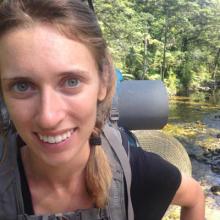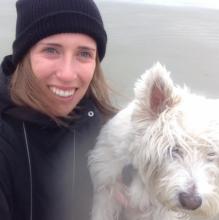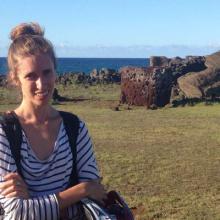Emily Gray
Why did you decide to pursue a graduate degree?
I decided to pursue a Master's degree because I see it as an opportunity translate my education into action and to build upon the critical thinking skills developed during my undergraduate studies. By specializing through graduate studies, I have been able to focus on my strengths and interests to cultivate a specific skill set to take forward into a career.
Why did you decide to study at UBC?
UBC has a great reputation in Canada and worldwide as a high quality institution. My favourite thing is the incredible amount of resources and opportunities that I have access to. I am continually impressed by the options available to me by virtue of being a UBC student.
What is it specifically, that your program offers, that attracted you?
The School of Community and Regional Planning was an attractive program because of the opportunity to integrate academic research and practical skill development in a Master's program. Also, it allowed me to design my own focus, related to interests I developed through my education in geography, environmental sustainability, and social sciences in general.
What aspect of your graduate program do you enjoy the most or are looking forward to with the greatest curiosity?
One of the aspects that I enjoy the most is working as a Research Assistant on a Resilient Coasts project with my supervisor, Dr. Stephanie Chang. As part of a team of four graduate students: Tugce Conger, Jackie Yip, and Michelle Marteleira, we are helping to develop an online platform, Resilient-C, that allows users to learn about what types of strategies and resources communities who are similarly vulnerable to coastal hazards are using to manage their risk. This is a project funded by the Marine Environmental Observation Prediction and Response Network (MEOPAR), a national Network of Centres of Excellence, and it has been a very exciting example of the relevant, practical work for which my graduate education is preparing me. Through my involvement with this project, I have gained valuable experience that is greatly contributing towards my research and career development.
What do you see as your biggest challenge(s) in your future career?
I see the gap between knowledge and action as the biggest challenge I am facing in my future career. I believe there is a lot of immensely valuable scientific knowledge and research existing that is not being effectively translated into action at the everyday citizen level. I view planning as a field that presents an opportunity to apply this knowledge to the development of communities through policies, government action, and public engagement.
I believe there is a lot of immensely valuable scientific knowledge and research existing that is not being effectively translated into action at the everyday citizen level. I view planning as a field that presents an opportunity to apply this knowledge to the development of communities through policies, government action, and public engagement.
What do you like to do for fun or relaxation?
I love to travel and spend time outdoors. Some highlights include Rapa Nui, Morocco, Indonesia, Peru, and New Zealand. While at home, I love to go hiking and camping, or to snowboard during the winter. For me, physical exercise and fresh air is a great way to relieve stress, although I also love to cozy up in coffee shops or local breweries!


